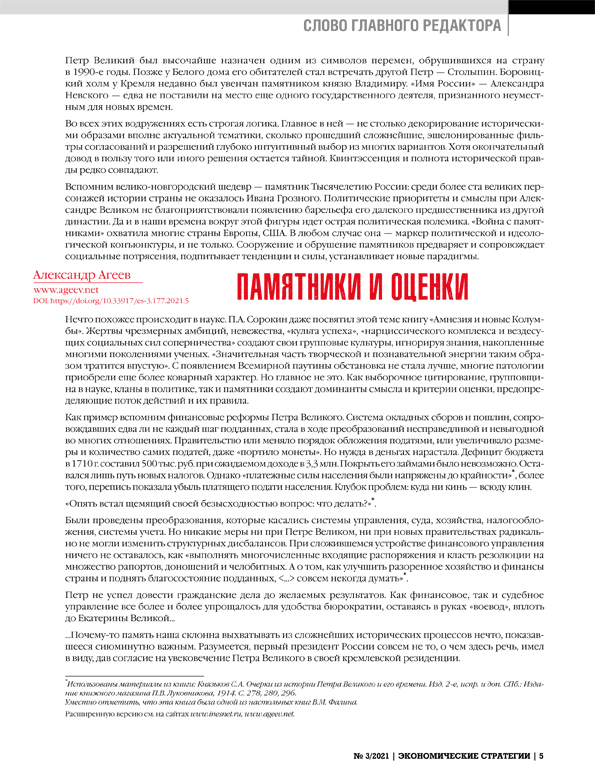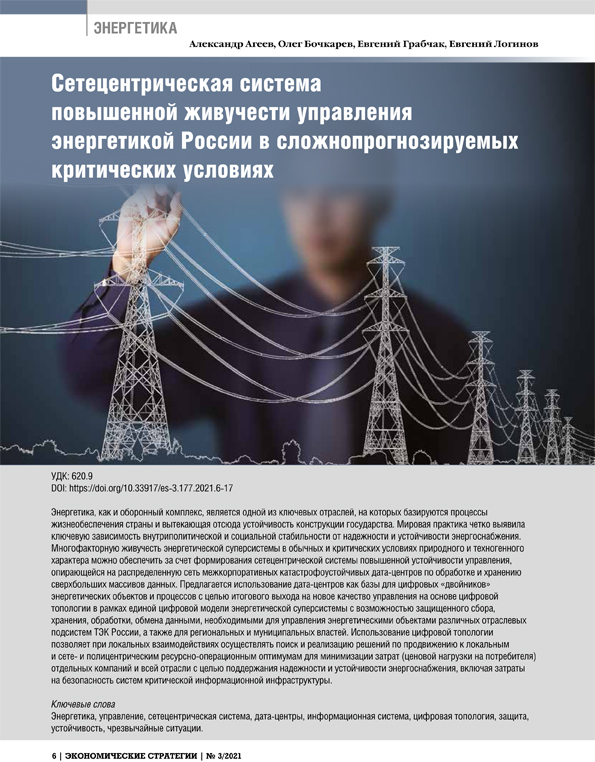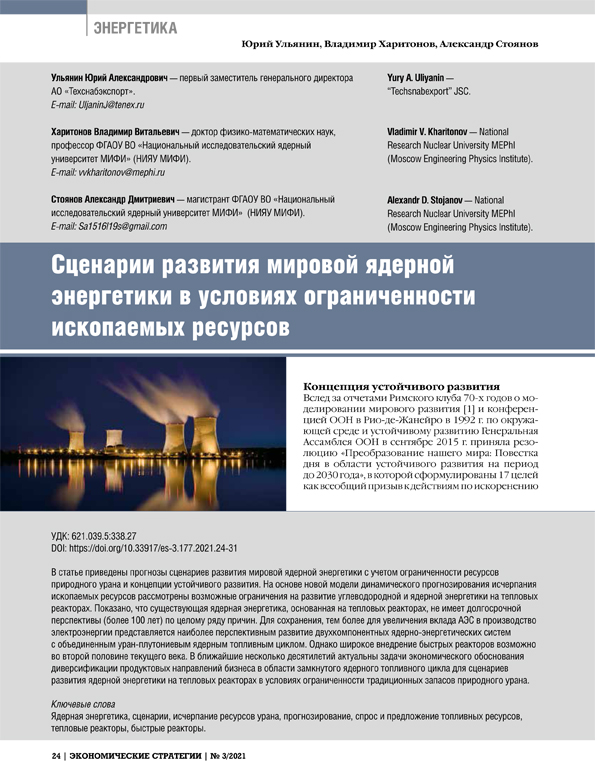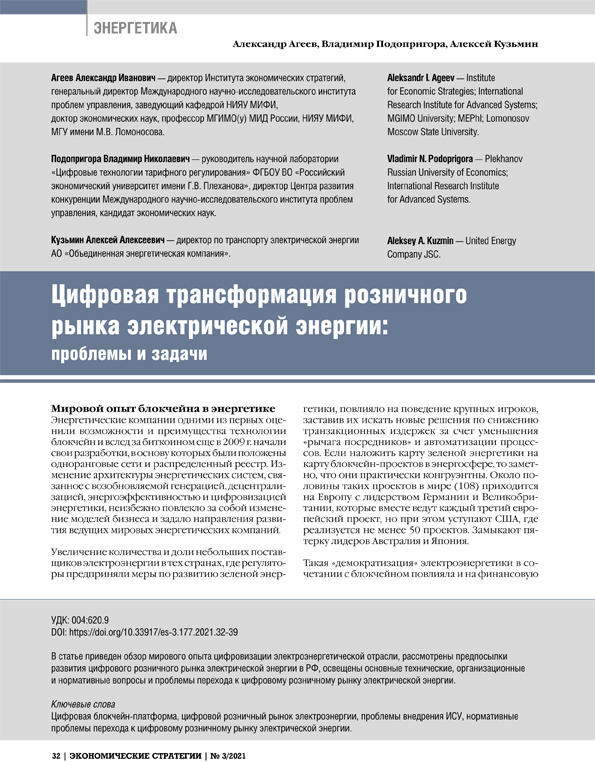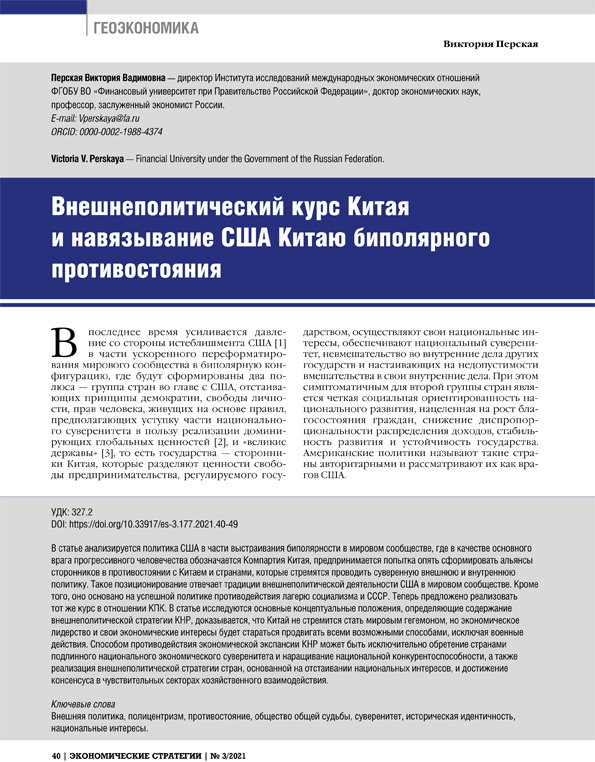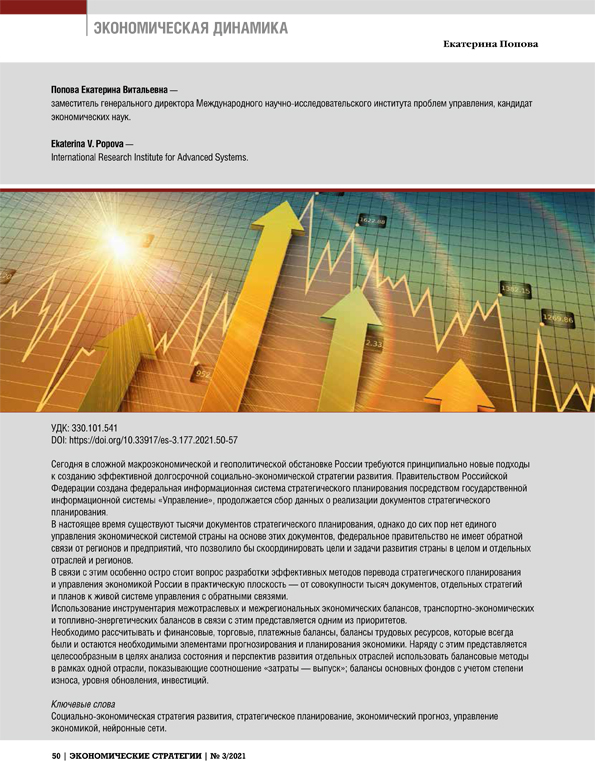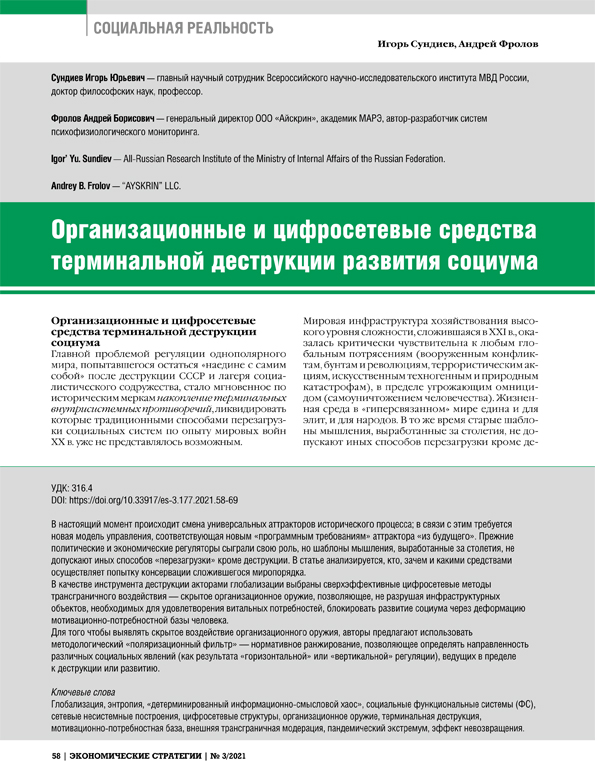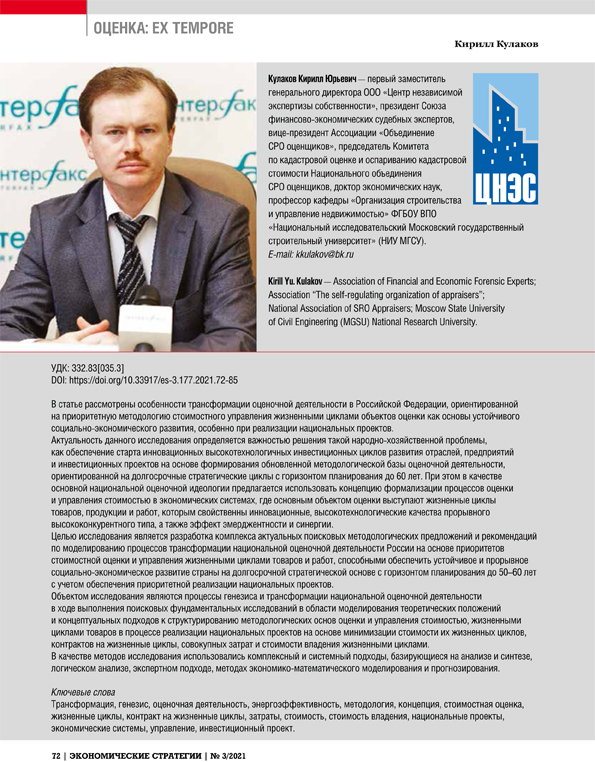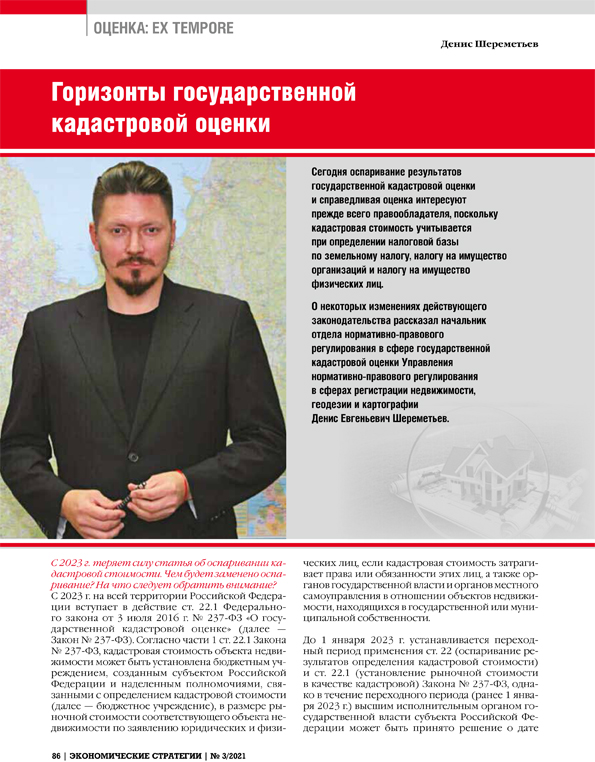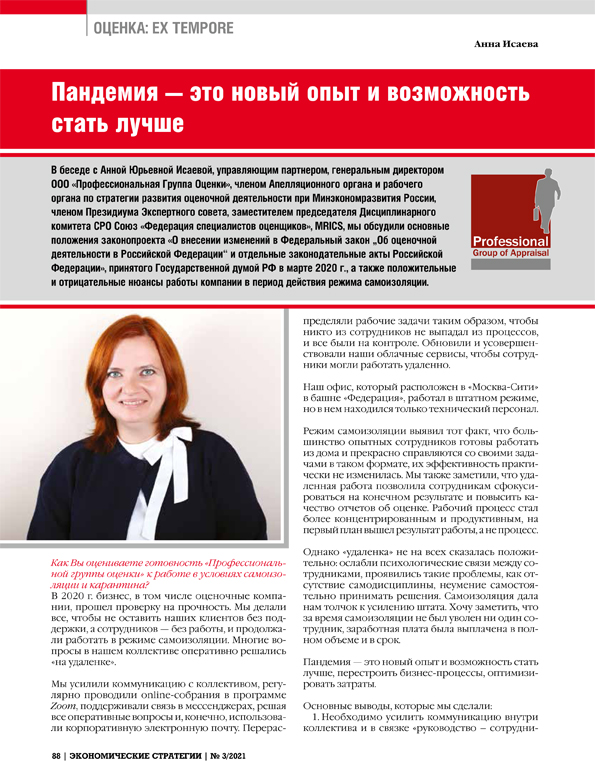The "Economic Strategies" journal
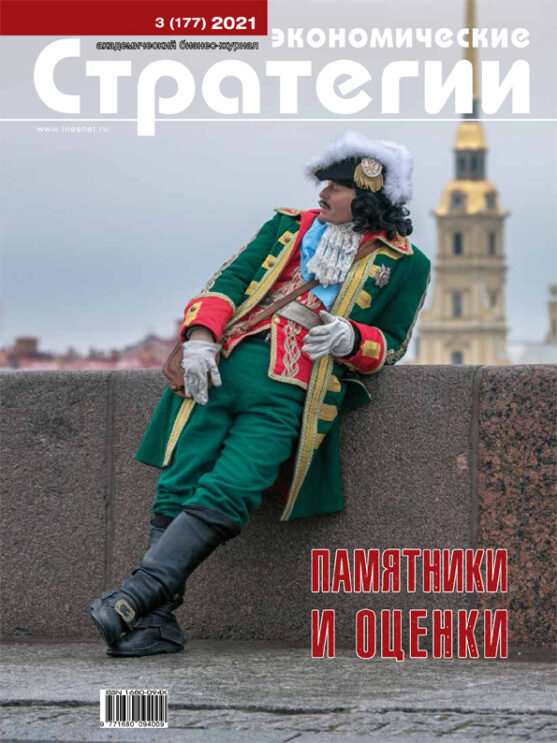
Net-Centric System of Elevated Stability (Survivability) of Energy Management in Russia Under Difficult-to-predict Critical Conditions
DOI: https://doi.org/10.33917/es-3.177.2021.6-17
Energy sector, like the defence complex, is one of the key industries that serve as a basis for the life support processes of the country and the resulting stability of the state political structure. World practice has clearly demonstrated the key dependence of domestic political and social stability on reliability and sustainability of energy supply. Multifactorial survivability of the energy supersystem under normal and critical conditions of natural and anthropogenic origin can be provided through forming a net-centric system of elevated management stability, based on a distributed network of inter-corporate disaster-resistant data centers for processing and storing extremely large data sets. It is proposed to use data centers as bases for digital “twins” of energy facilities and processes in order to finally achieve a new quality of control based on digital topology within a single digital model of the energy supersystem with the possibility of secure collection, storage, processing and exchange of data, necessary for managing power facilities of various sectoral subsystems of the Russian fuel and energy complex, as well as for regional and municipal authorities. Application of digital topology makes it possible, during local interactions, to search for and implement solutions for moving towards local, network and polycentric resource-operational optima in order to minimize costs (price burden on the consumer) of separate companies and the entire industry with the aim of maintaining reliability and sustainability of energy supply, including security costs of the critical information infrastructure systems
Scenarios for the Development of World Nuclear Power in the Context of Limited Fossil Resources
DOI: https://doi.org/10.33917/es-3.177.2021.24-31
Forecasts of the scenarios for the development of the world nuclear power industry are given, taking into account the limited resources of natural uranium and the concept of sustainable development. On the basis of a new model of dynamic forecasting of the depletion of fossil resources, possible restrictions on the development of hydrocarbon and nuclear energy at thermal reactors are considered. It is shown that the existing nuclear power based on thermal reactors does not have a long-term perspective (more than 100 years) for a number of reasons. The most promising development in order to maintain and, moreover, increase the contribution of nuclear power plants to electricity generation, is the two-component nuclear power system with a combined uranium-plutonium nuclear fuel cycle. However, the widespread introduction of fast-neutron reactors is possible in the second half of this century. For the next few decades, the tasks of economic substantiation of the diversification of business product lines in the field of a closed nuclear fuel cycle for scenarios of the development of nuclear power on thermal reactors in conditions of limited traditional reserves of natural uranium are urgent
Digital Transformation of Retail Electricity Market: Problems and Challenges
DOI: https://doi.org/10.33917/es-3.177.2021.32-39
The article provides an overview of the world experience of digitalization of the electric power industry, examines the prerequisites for the development of the digital retail electricity market in the Russian Federation, highlights the main technical, organizational and regulatory issues and problems of transition to the digital retail electricity market
Foreign Policy of China and the United States’ Imposition of a Bipolar Confrontation on China
DOI: https://doi.org/10.33917/es-3.177.2021.40-49
The article analyzes the US policy in terms of rebuilding bipolarity in the world community, where the Communist Party of China is designated as the main enemy of progressive humanity, an attempt is made to reform alliances of supporters of confrontation with China and countries that are confidently striving to pursue sovereign foreign and domestic policies. For the United States, this positioning corresponds to the tradition of foreign policy activities in the world community. In addition, it is based on the success of the policy of counteracting the camp of socialism and the USSR, and it was proposed to implement the same course in relation to the CPC of the PRC. A study of the main conceptual provisions determining the content of the PRC’s foreign policy strategy was carried out, it was proved that China does not seek to become a hegemon in the world community, but economic leadership and its economic interests will try to promote in all possible ways, excluding military actions. The economic expansion of the PRC can only be counteracted by the countries gaining genuine national economic sovereignty and building up national competitiveness, an interstate foreign policy strategy pursued by countries on the basis of realizing national interests and reaching an agreed consensus in sensitive sectors of economic interaction.
Proposals for Creating an Effective Mechanism for Implementation of the Long-term Socio-economic Strategy of Russia
DOI: https://doi.org/10.33917/es-3.177.2021.50-57
Today, in a complicated macroeconomic and geopolitical environment, Russia requires fundamentally new approaches to creating an effective long-term socio-economic development strategy. The Government of the Russian Federation has created a federal information system for strategic planning through the state information system “Management”, collection of data on implementation of strategic planning documents is going on.
Currently, there are thousands of strategic planning documents, but it is still missing a unified management of the country’s economic system based on these documents, federal government does not have feedback from regions and enterprises, which could allow coordinating the development goals and objectives of the country as a whole and individual industries and regions.
In this regard, the issue of developing effective methods for converting strategic planning and management of the Russian economy into operational terms is particularly urgent — from a set of thousands of documents, individual strategies and plans to an operate management system with feedback.
Application of the toolkit for intersectoral and interregional economic balances, transport-economic and fuel-energy balances, in that respect, seems to be one of the priorities. It is also necessary to calculate financial, trade balances, balances of payments, of labour resources, which have always been and still remain necessary elements of economy forecasting and planning. Along with this, it seems appropriate, analyzing the state and prospects of individual industries development to use balance methods within the same industry, showing the ratio of “costs — issue”, balances of fixed assets, based on depreciation degree, the level of renewal, investments.
Источники:
1. Leont’ev V.V. Ekonomicheskie esse. Teorii, issledovaniya, fakty, politika [Economic Essays. Theory, Research, Facts, Politics]. Moscow, Politizdat, 1990, p. 230.
2. Veduta E.N. Mezhotraslevoi-mezhsektornyi balans, mekhanizm strategicheskogo planirovaniya ekonomiki [Inter-industry-cross-sectoral Balance, Mechanism for Strategic Economic Planning]. Moscow, Akademicheskii proekt, 2016, p. 141.
3. Materialy seminara «Razvitie metodologii prognozirovaniya ekonomiki Rossii na baze mezhotraslevogo i mezhregional’nogo kompleksa» [Proceedings of the Seminar “Developing Methodology for the Russian Economy Forecasting on the Basis of an Inter-sectoral and Cross-regional Complex”]. Moscow, OAO «IERT», 2014, p. 56.
Organizational and Digital Network Means of Terminal Destruction of Social Development
DOI: https://doi.org/10.33917/es-3.177.2021.58-69
At the moment, there is a change in the universal attractors of the historical process; in this regard, a new management model is required, corresponding to the new “program requirements” of the attractor “from the future”. The former political and economic regulators have fulfilled their role, but the patterns of thinking developed over the centuries do not allow for any other means of “reset” than destruction. The article analyzes who, why, and by what means attempts to preserve the existing world order. As a tool of destruction, the actors of globalization have chosen ultra-effective digital network methods of cross-border impact — a hidden organizational weapon that allows, without destroying the infrastructure facilities necessary to meet vital needs, to block the development of society through the deformation of the motivational and need base of a person.
In order to identify the hidden impact of organizational weapons, the authors propose to use a methodological “polarizing filter” — a normative ranking that allows us to determine the direction of various social phenomena as the results of “horizontal” or “vertical” regulation, leading to the limit of destruction or development.
Peculiarities of the Valuation Activities Ttransformation in Russia Based on the Value Management Priorities of the Life Cycles of Goods, Works and Services
DOI: https://doi.org/10.33917/es-3.177.2021.72-85
The article discusses particular features of the appraisal activities transformation in the Russian Federation, focused on the priority methodology in cost management of the appraisal objects’ life cycles as the basis for sustainable socio-economic development, especially in implementing national projects. The relevance of this study is based on the importance of solving such a national economic problem as providing the launch of innovative high-tech investment cycles in development of industries, enterprises and investment projects based on forming an updated methodological base for appraisal activities focused on long-term strategic cycles with planning horizon up to 60 years. Furthermore, as the main national evaluation ideology it is proposed to use the concept of formalizing evaluation and value management processes in economic systems, where the main object of assessment is the life cycle of goods, products and works, which are characterized by innovative, high-tech qualities of a breakthrough highly competitive type, as well as by the effect of emergence and synergy.
The aim of the present study is to elaborate a set of relevant search methodological proposals and recommendations for modeling the transformation processes of the national evaluation activity of Russia based on the priorities of cost evaluation and of the life cycles management of goods and works that can provide sustainable and breakthrough socio-economic development of the country on the long-term strategic basis with a planning horizon of up to 50-60 years, with a view to ensuring priority implementation of national projects.
The study is focused on the processes of genesis and transformation of national appraisal activity in the course of exploratory fundamental research in the field of modeling theoretical provisions and conceptual approaches to structuring methodological framework of evaluation and management of costs, life cycles of goods in the process of implementing national projects based on minimizing the cost of their life cycles, contracts on life cycles, total costs and life cycles’ cost of ownership.
Integrated and systemic approaches based on analysis and synthesis, logical analysis, expert approach, methods of economic and mathematical modeling and forecasting were used as research methods.
Горизонты государственной кадастровой оценки
Сегодня оспаривание результатов государственной кадастровой оценки и справедливая оценка интересуют прежде всего правообладателя, поскольку кадастровая стоимость учитывается при определении налоговой базы по земельному налогу, налогу на имущество организаций и налогу на имущество физических лиц. О некоторых изменениях действующего законодательства рассказал начальник отдела нормативно-правового регулирования в сфере государственной кадастровой оценки Управления нормативно-правового регулирования в сферах регистрации недвижимости, геодезии и картографии Денис Евгеньевич Шереметьев.
Пандемия — это новый опыт и возможность стать лучше
В беседе с Анной Юрьевной Исаевой, управляющим партнером, генеральным директором ООО «Профессиональная Группа Оценки», членом Апелляционного органа и рабочего органа по стратегии развития оценочной деятельности при Минэкономразвития России, членом Президиума Экспертного совета, заместителем председателя Дисциплинарного комитета СРО Союз «Федерация специалистов оценщиков», MRICS, мы обсудили основные положения законопроекта «О внесении изменений в Федеральный закон „Об оценочной деятельности в Российской Федерации“ и отдельные законодательные акты Российской Федерации», принятого Государственной думой РФ в марте 2020 г., а также положительные и отрицательные нюансы работы компании в период действия режима самоизоляции.


